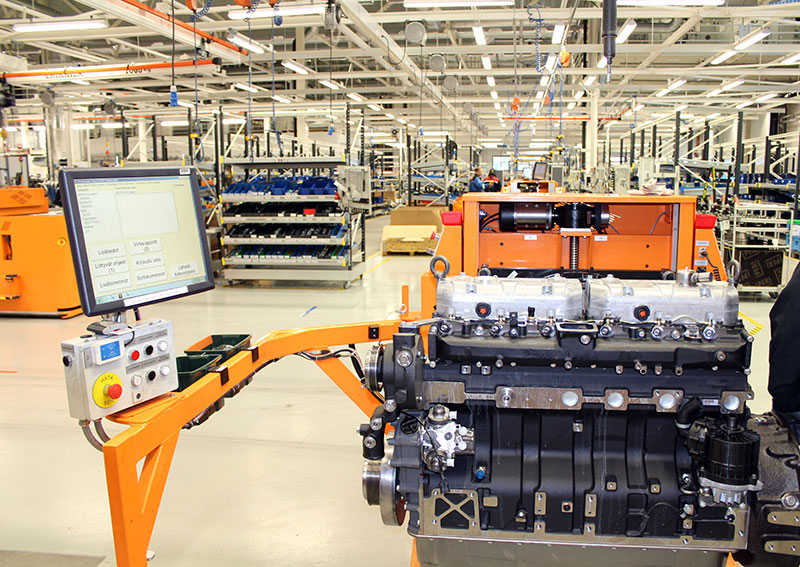
Like many manufacturers in Finland, AGCO Power Finland is a highly specialized company. The challenging economic conditions result in maintaining production and jobs being a ruthless race against time and globalization. When every production minute counts, is MES suitable as the savior?
The Linnavuori AGCO Power plant in Nokia, which produces diesel engines, is recognized as the most automated plant in Finland. The Group’s global systems, however, were designed to direct top-level processes and are not well-suited for improving the operational efficiency of a highly specialized plant. In order to improve on the ERP processes, functions are being standardized and reporting harmonized in the Group
“From a top-level management perspective, the assembly engines and seeding equipment have a lot in common, but the actual physical processes and logistics are very different. Therefore, we wanted a system that is customized for us, flexible and highly automated and is able to pay for itself, while still being compatible with the Group’s management systems”, Transformation Project Lead Pekka Saarelainen explains.
AGCO is the third largest manufacturer of agricultural machinery in the world. The Group has grown largely through acquisitions. AGCO has dozens of locations and several systems that are being harmonized.
“It is too risky to do several SAP implementations simultaneously. Therefore, our approach has been to standardize ERP and customize the MES for each plant. How the processes are defined and positioned into different systems is important. Currently, a majority of the efficiency increases that we are realizing are coming from the functions we are running in MES”, Saarelainen says.
In addition to the demanding ERP integrations, the MES to be delivered by Leanware was to include dozens of different automation interfaces for managing warehouse logistics and picking. Phased expansions have been made to the system, which was originally implemented in 2006, all the way to 2013. In the first phase, installers were aided by work instructions, product designs and component lists. The system was later expanded to include automation, picking, warehouse management and quality questions and trials, for example.
“As there are well over 500 different product variations, work cannot be based on memory or previous experience. The system provides the right work instructions and components to the right work centers at the right times. Automatic quality control provides instant feedback installer-specifically, which results in increased job satisfaction and motivation.”
In addition to improving the efficiency of processes, the system has become an irreplaceable tool for continuous improvement and management at AGCO Power. The real-time measurements and exception statistics clearly identify the problem areas and cannot be influenced to gloss over them. This allows problems to be identified and resolved
“The most significant financial benefit is a result of improved throughput times. When compared to before we had the MES and more efficient processes, we are now able to produce twice the volume using the same personnel. At the same time, training times have been reduced from months to days. Resource use is more flexible and people can also be hired to work on the production line without previous experience or training.”
Saarelainen identifies four factors as the most significant for the end result and operational reliability: high-quality data, reliable support, process discipline and training.
“Leanware provides all of these, in addition to cost-efficiency and quick implementation of changes.”
AGCO Power is a diesel engine plant that has operated for 70 years in Linnavuori, Nokia, and underwent a transformative manufacturing technology refresh during 2005-2007. The plant production capacity is 40,000 diesel engines per year. www.agcopower.com